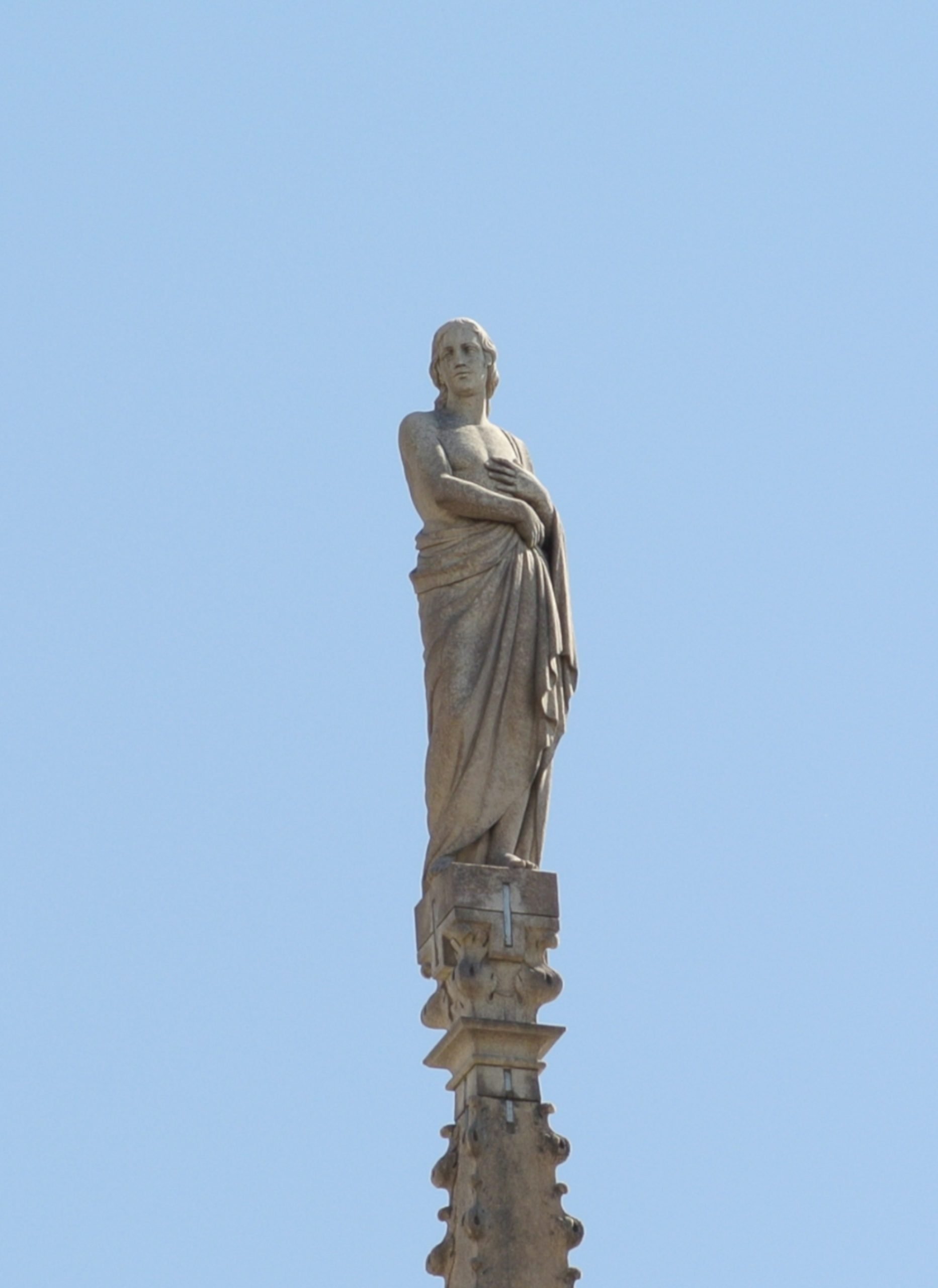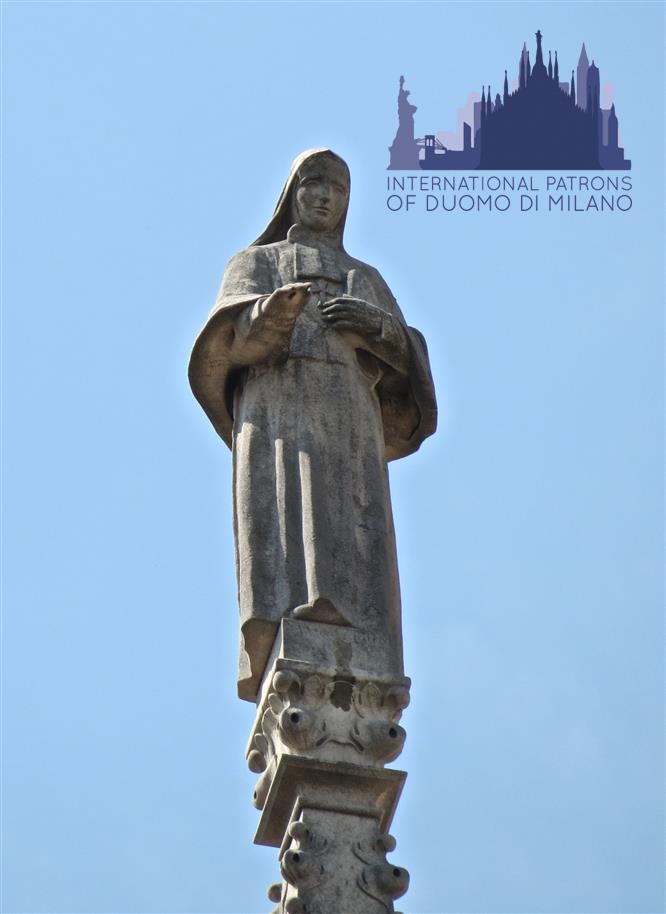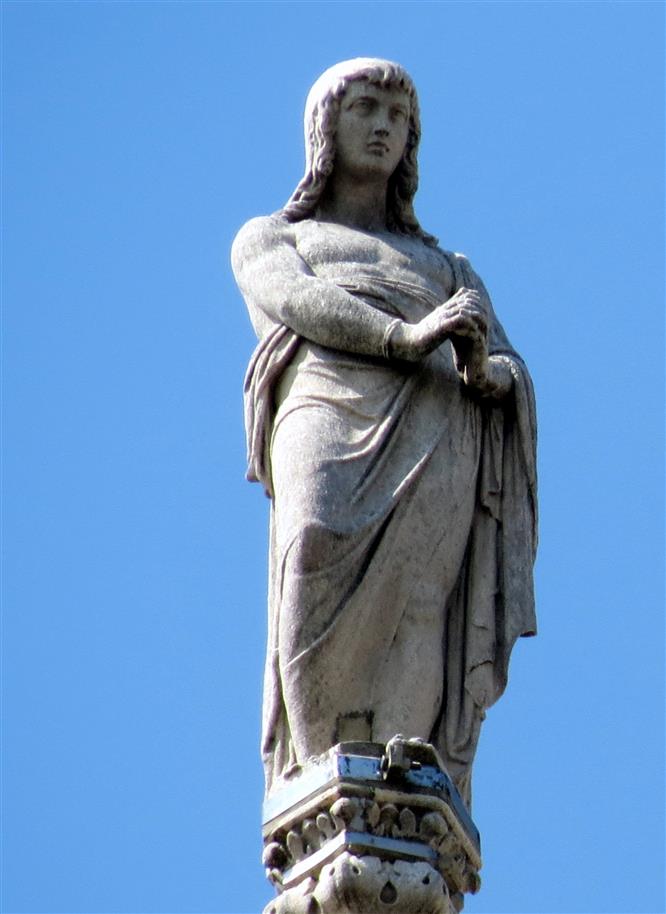Eustachio was a Roman martyr who lived in Rome between the 1st and 2nd century. Legend has it that, before the conversion, his name was Placidus, a general at the service of Trajan. One day he followed a magnificent deer during a hunting spree, and was about to kill the animal when he had a vision: a bright cross appeared between the deer’s horns and Jesus Christ spoke to him, saying, ‹‹Placido, why are you persecuting me? I am Jesus whom you honour without knowing it.›› This episode led to his conversion, when he changed his name to Eustachio, from the Greek word, which means “one who is rich in ears of wheat”. But several unfortunate events occurred after the conversion of his wife and children. He lost all his wealth and migrated to Egypt, but the family was divided during the journey, as his wife was held by the captain of the ship, and his children were kidnapped by wild animals as soon as they touched land. So he lived alone for fifteen years in a village called Badisso until Emperor Trajan sent for him as the Barbarians had invaded the empire, and he was needed. Restored to his role of commander, he enrolled two strong and courageous men as non-commissioned officers without realising that they were actually his two sons, who had survived. They won the war and the family was reunited but Trajan died and was succeeded by Adrian who ordered a thanksgiving ritual in the temple of Apollo to celebrate the victory. Eustachio attended the ceremony but he refused to make sacrifice to the gods and was, therefore, sentenced to death along with his family.The author of the statue that crowns Spire G33 is Grazioso Rusca, Director of Sculpture at Veneranda Fabbrica del Duomo in the early 19th century. The statue was produced in 1813. Sant’Eustachio is depicted as a bearded man with right hand placed on his hip, and his left hand holding an invisible weapon, perhaps a lance that was removed in the course of time.
SANT’EUSTACHIO
Patron Saint: Hunters and gamekeepers, Patron of the city of Matera Symbol: Doe, palm branch
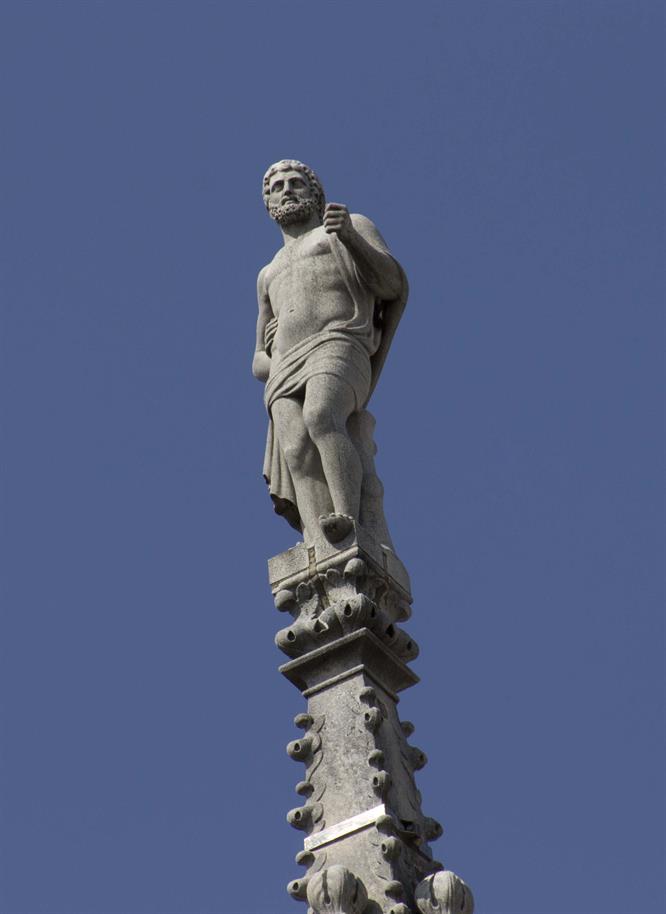
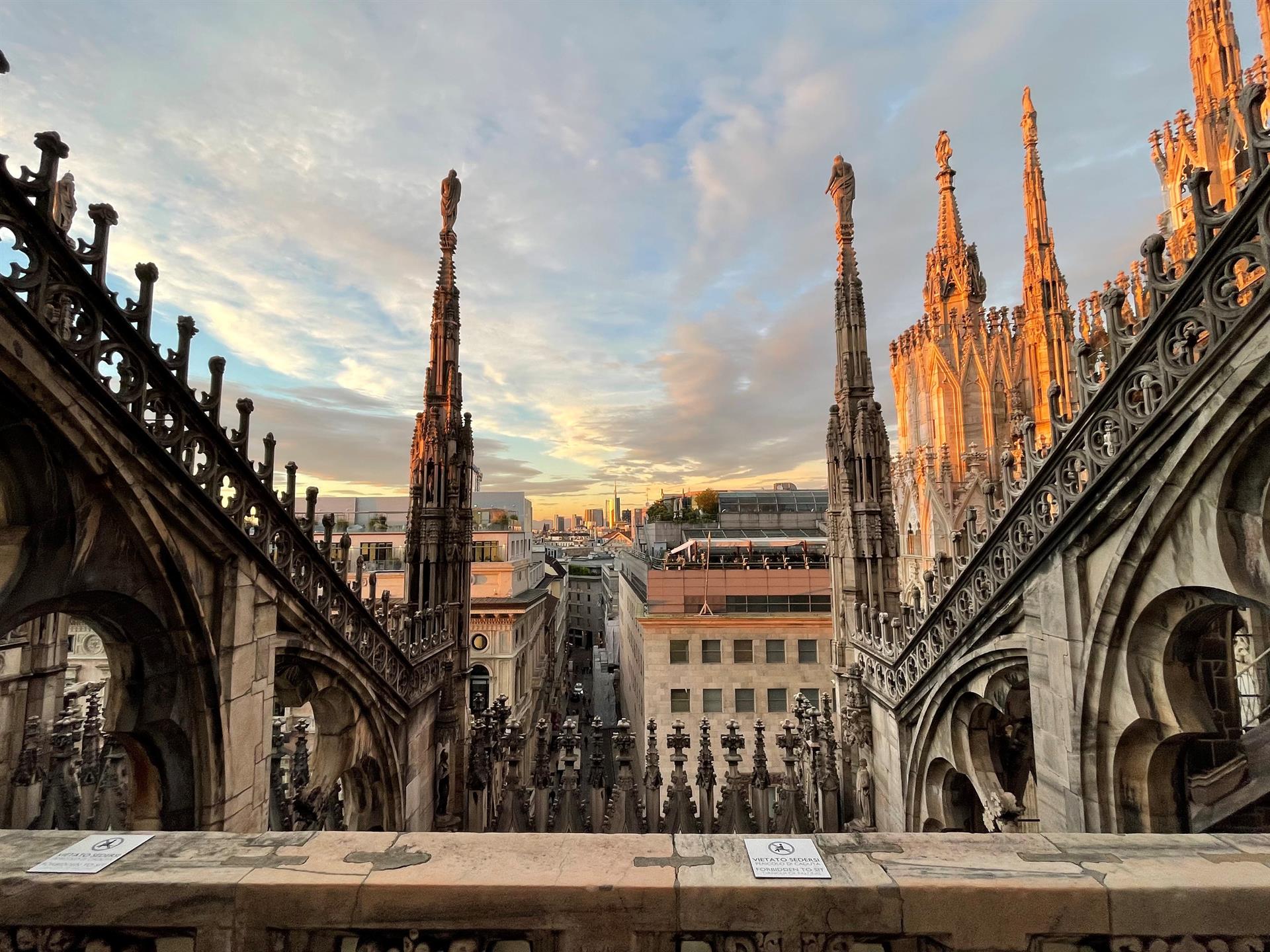
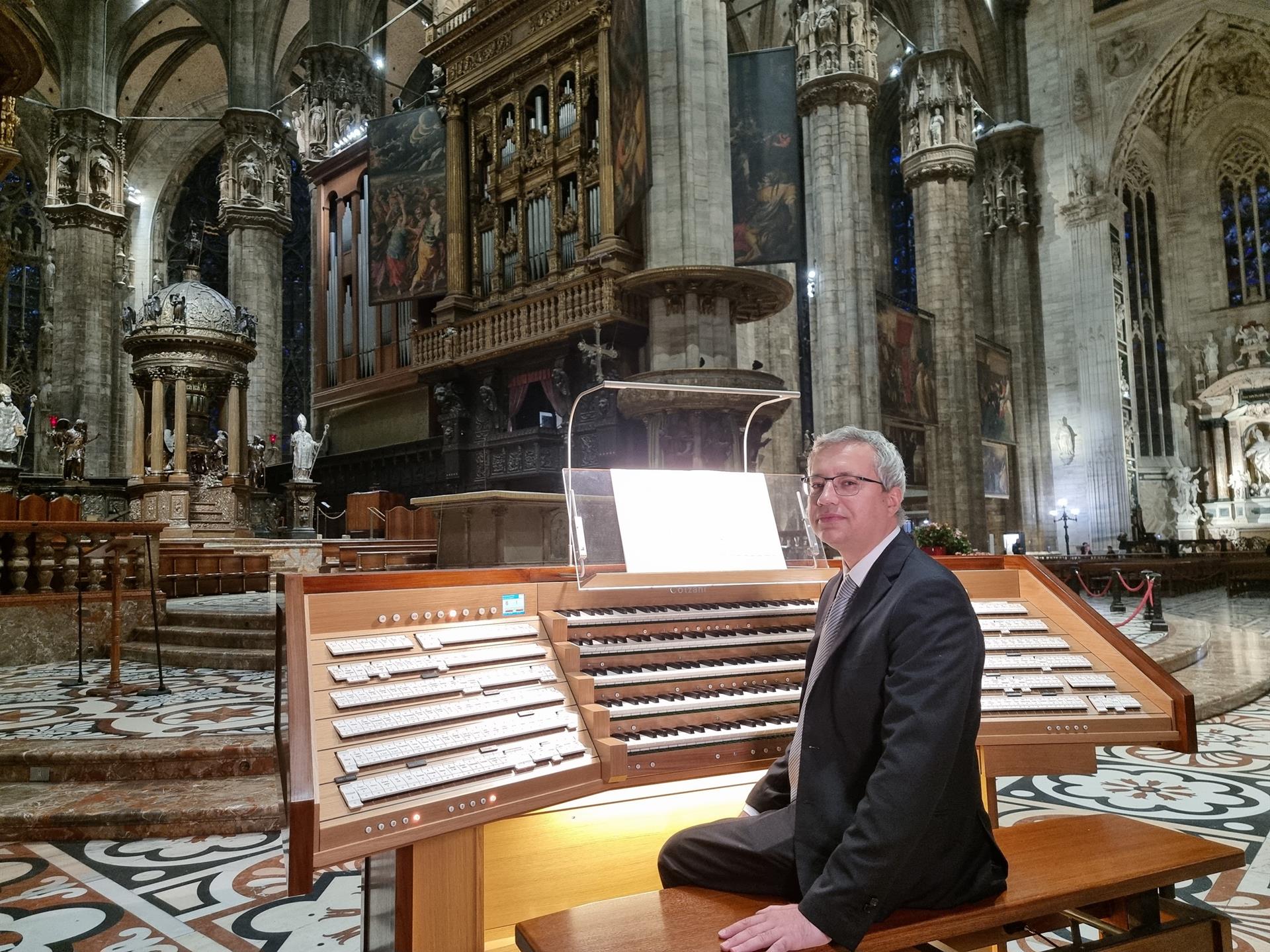
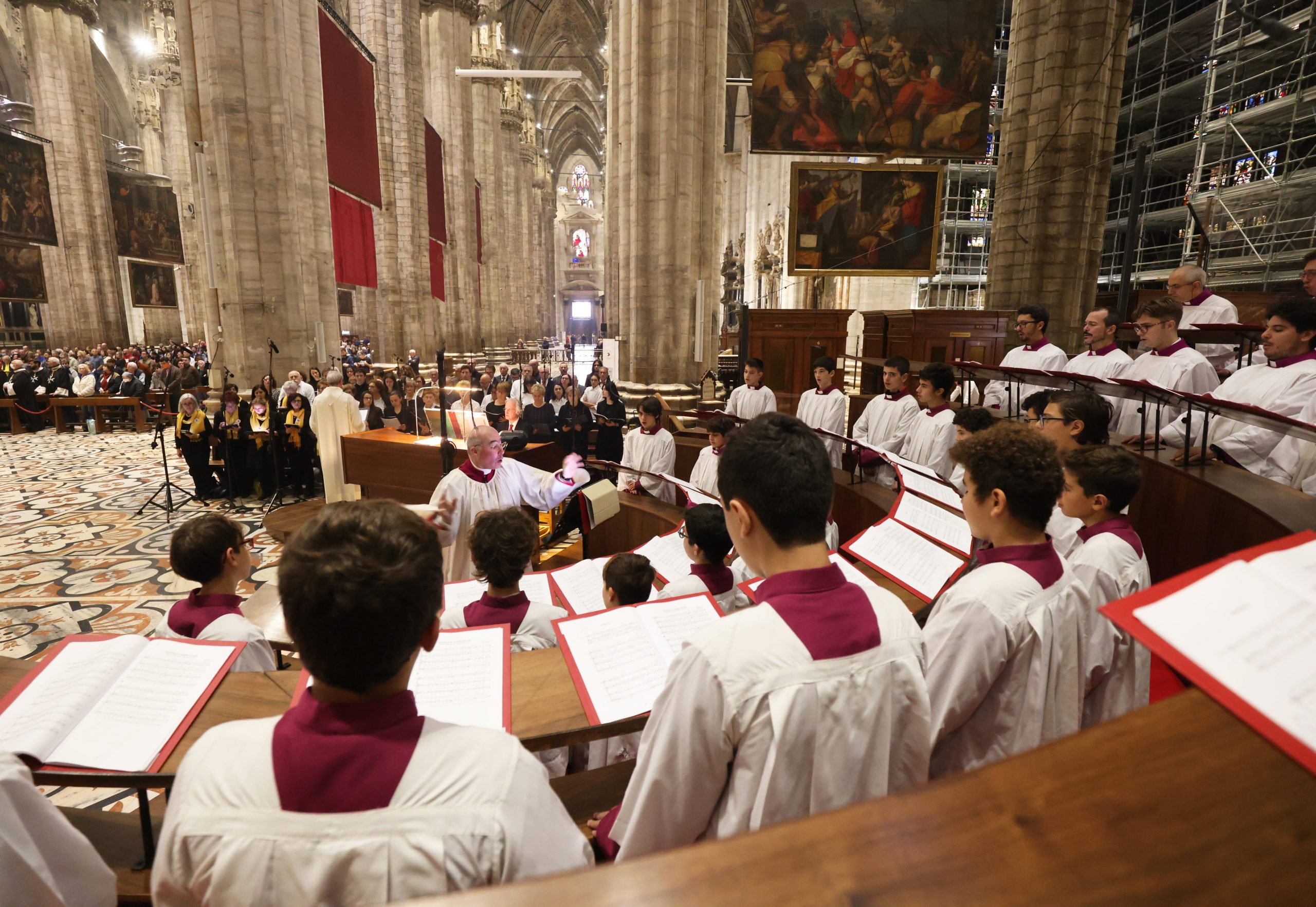
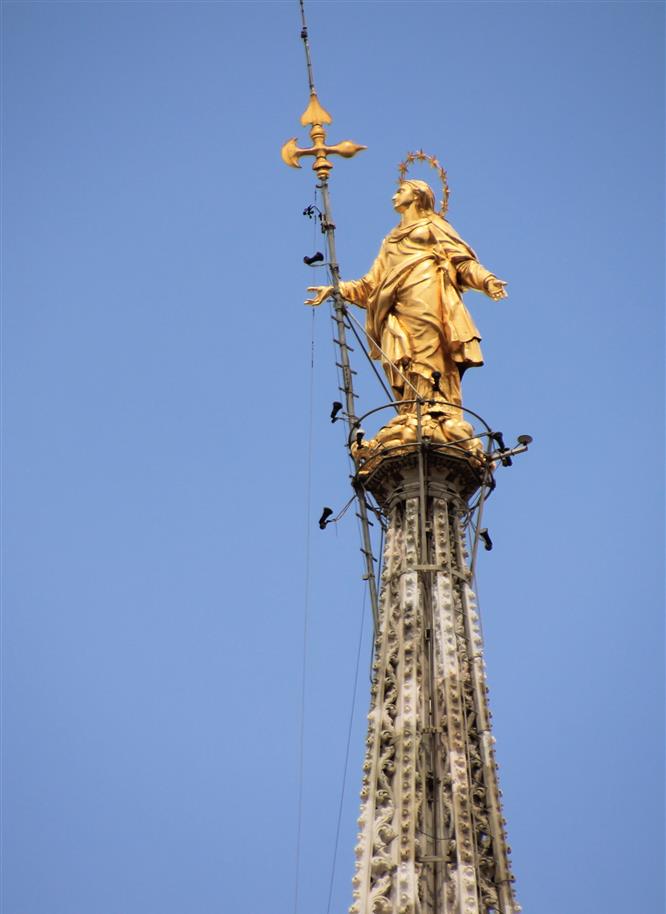
 Tiburio
Tiburio